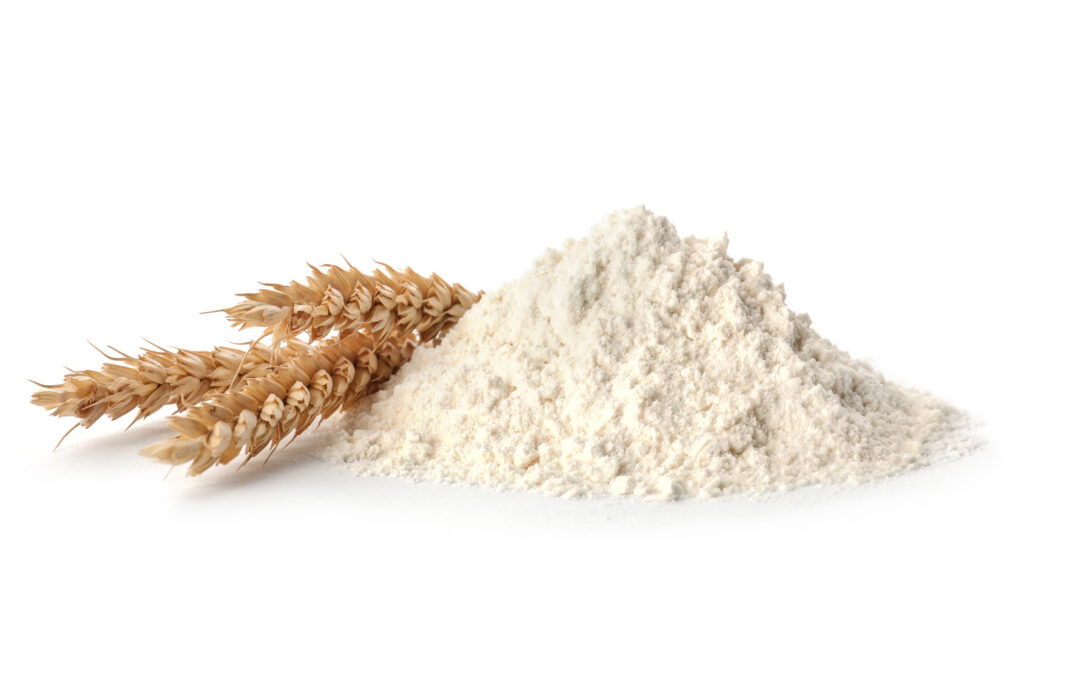If you’re looking to break into the homemade dog treat business (or just want to make your dog some healthy homemade treats), you’re probably wondering what flours are safe for your dog.
The first question you should ask is: can my dog even eat flour? The short answer is yes, but it depends on the type.
Before we talk about flour, let’s talk about the natural diet of dogs. A dog’s diet ideally consists of meats, vegetables, fruits, and other whole foods. The base of the diet should be protein, followed by carbohydrates and fats. Although flour is technically a source of carbohydrates, there are many types and it can be difficult to figure out which ones are safe for your dog to consume. Dogs don’t need to consume flour, but flour is often found in many products and recipes.
Wheat Flours
Wheat flour is one of the most commonly used flour. These varieties include white, wheat, all-purpose, cake, and pastry flours. While flour is not recommended as it is highly treated and stripped of most nutrients. Whole grain flours are more natural as the nutrients from the grain remains in the flour. Some dogs, however, can have a sensitivity to wheat, so non-grain flours might be a better, healthier option.
Rice Flour
Rice flour is good for baking as well as is great for dogs with a wheat sensitivity. Rice flour is made from medium-grain or long-grain rice. Sweet rice flour – though not actually sweet – is made from short-grain rice.
Nut Flours
Nut flours, unlike wheat and rice flours, are high in protein and low in carbs. They are rich with essential fatty acids such as omega-3s. Nut flours include almond and hazelnut flours, chickpea flour, and oat and barley flour. Additional non-grain flours that are safe for dogs include coconut, lentil, and potato flour.
Flours to Avoid
Three flours to avoid are soy, wheat, and corn flours. Most dogs are sensitive to both corn and soy as they cannot properly digest them.
Many lower-quality dog foods include wheat, corn and soy. Because these ingredients are cheap, they keep the cost of the product down. However, these flours provide very little nutritional value. In fact, they can be harmful to dogs as they are three of the most common allergens for dogs. Dogs who are allergic to corn, soy, or wheat flours will often have digestive issues as well as itchy ears and flaky skin. Certain dogs could develop nutritional deficiencies in their diets. Before adding a new item to your dogs’ diet, be sure to consult with your veterinarian for any sensitivities
Will Corrente is an advisor, consultant, and dog care entrepreneur. He is the Founder of Pet Venture Capital Management and a trusted authority and an expert in the dog care industry. Will has over 15 years of experience as the owner and operator of Very Important Paws Dog Resort in West Palm Beach, FL. Copyright 2020 k9vitatherapy.com


Hi my family member! I want to say that this article is amazing, nice written and come with approximately all important infos. I’d like to peer more posts like this .